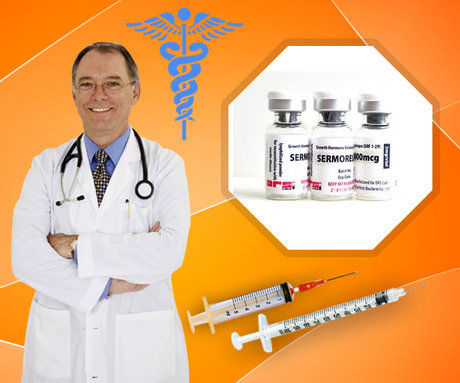Introduction to Hypopituitarism
Hypopituitarism is a condition characterized by the diminished secretion of one or more of the eight hormones produced by the pituitary gland. This small, pea-sized gland, located at the base of the brain, is often referred to as the "master gland" because it plays a pivotal role in regulating various bodily functions through hormone control. For American males, understanding hypopituitarism is crucial, as it can significantly impact overall health, including growth, metabolism, and reproductive function.
The Pituitary Gland and Its Hormones
The pituitary gland is divided into two main sections: the anterior and posterior lobes. The anterior lobe produces hormones such as growth hormone (GH), adrenocorticotropic hormone (ACTH), thyroid-stimulating hormone (TSH), luteinizing hormone (LH), follicle-stimulating hormone (FSH), and prolactin. The posterior lobe releases antidiuretic hormone (ADH) and oxytocin. These hormones are essential for regulating growth, stress response, thyroid function, sexual and reproductive health, and water balance in the body.
Causes of Hypopituitarism
Hypopituitarism can arise from various causes, including tumors, head injuries, radiation therapy, autoimmune conditions, and infections. In American males, pituitary adenomas, which are benign tumors, are a common cause. These tumors can either directly damage the pituitary gland or interfere with its function by pressing on the gland and disrupting hormone secretion.
Symptoms and Diagnosis
The symptoms of hypopituitarism in males can vary widely depending on which hormones are affected and the severity of the deficiency. Common signs include fatigue, decreased libido, erectile dysfunction, infertility, muscle weakness, and changes in body composition such as increased fat mass and decreased muscle mass. In cases where growth hormone is deficient, men may experience a decrease in overall height if the condition develops during childhood or adolescence.
Diagnosis of hypopituitarism involves a comprehensive evaluation, including blood tests to measure hormone levels, imaging studies such as MRI to assess the pituitary gland, and stimulation tests to evaluate the gland's response to specific stimuli. Early diagnosis is essential to prevent long-term complications and to initiate appropriate treatment.
Treatment and Management
Treatment for hypopituitarism focuses on hormone replacement therapy to restore normal hormone levels. For instance, testosterone replacement therapy can be used to address deficiencies in LH and FSH, which are crucial for male sexual function and fertility. Growth hormone replacement may be necessary for those with GH deficiency, while corticosteroids can be used to replace insufficient ACTH production.
Regular monitoring and adjustments to the treatment regimen are essential to manage hypopituitarism effectively. Lifestyle modifications, such as maintaining a healthy diet and regular exercise, can also support overall health and enhance the effectiveness of hormone replacement therapy.
Impact on Quality of Life
Hypopituitarism can significantly affect the quality of life for American males. Hormonal imbalances can lead to emotional and psychological challenges, including depression and anxiety. It is important for men to seek support from healthcare providers and mental health professionals to address these issues comprehensively.
Conclusion
Understanding hypopituitarism and the critical role of the pituitary gland in hormone regulation is vital for American males. By recognizing the symptoms, seeking timely diagnosis, and adhering to appropriate treatment, men can manage this condition effectively and maintain their health and well-being. As research continues to advance, new therapies and management strategies may further improve outcomes for those affected by hypopituitarism.
Contact Us For A Fast And Professional Response

- Unraveling the Link Between Hypopituitarism and Cardiovascular Health in American Males [Last Updated On: March 3rd, 2025] [Originally Added On: March 3rd, 2025]
- Hypopituitarism's Impact on American Men: Symptoms, Challenges, and Coping Strategies [Last Updated On: March 10th, 2025] [Originally Added On: March 10th, 2025]
- Unraveling the Link Between Hypopituitarism and Metabolic Syndrome in American Males [Last Updated On: March 15th, 2025] [Originally Added On: March 15th, 2025]
- Hypopituitarism and Cardiovascular Health: Unveiling the Hidden Risks in American Males [Last Updated On: March 16th, 2025] [Originally Added On: March 16th, 2025]
- Unveiling the Connection: Hypopituitarism and Uterine Fibroids in American Males [Last Updated On: March 16th, 2025] [Originally Added On: March 16th, 2025]
- Understanding Hypopituitarism and Its Impact on Male Reproductive Health [Last Updated On: March 16th, 2025] [Originally Added On: March 16th, 2025]
- Unraveling the Hormonal Link: Hypopituitarism and Breast Cancer in American Males [Last Updated On: March 16th, 2025] [Originally Added On: March 16th, 2025]
- Hypopituitarism's Impact on Cognitive Function in American Males: Diagnosis and Management [Last Updated On: March 17th, 2025] [Originally Added On: March 17th, 2025]
- Hypopituitarism and Autoimmune Disorders: Implications for American Males [Last Updated On: March 18th, 2025] [Originally Added On: March 18th, 2025]
- Hypopituitarism in American Males: Impacts on Sleep and Hormonal Balance [Last Updated On: March 18th, 2025] [Originally Added On: March 18th, 2025]
- Hypopituitarism in American Males: Impact on Skin Health and Management Strategies [Last Updated On: March 18th, 2025] [Originally Added On: March 18th, 2025]
- Hypopituitarism and Obesity in American Males: Hormonal Impacts and Management Strategies [Last Updated On: March 18th, 2025] [Originally Added On: March 18th, 2025]
- Hypopituitarism in American Males: Pituitary Tumors and Surgical Management Insights [Last Updated On: March 18th, 2025] [Originally Added On: March 18th, 2025]
- Hypopituitarism and Anemia in American Males: The Erythropoietin Connection [Last Updated On: March 19th, 2025] [Originally Added On: March 19th, 2025]
- Multidisciplinary Approach to Managing Hypopituitarism in American Males [Last Updated On: March 19th, 2025] [Originally Added On: March 19th, 2025]
- Hypopituitarism in Aging American Males: Symptoms, Impact, and Management Strategies [Last Updated On: March 20th, 2025] [Originally Added On: March 20th, 2025]
- Hypopituitarism in American Males: Cancer Risks and Management Strategies [Last Updated On: March 21st, 2025] [Originally Added On: March 21st, 2025]
- Hypopituitarism and Male Pattern Baldness: Hormonal Links and Psychological Impacts [Last Updated On: March 21st, 2025] [Originally Added On: March 21st, 2025]
- Hypopituitarism's Impact on Joint Health in American Males: Hormones and Management [Last Updated On: March 21st, 2025] [Originally Added On: March 21st, 2025]
- Hypopituitarism and Hearing Loss: Implications for American Males [Last Updated On: March 22nd, 2025] [Originally Added On: March 22nd, 2025]
- Hypopituitarism in American Males: Impacts on Mental Health and Management Strategies [Last Updated On: March 22nd, 2025] [Originally Added On: March 22nd, 2025]
- Hypopituitarism's Impact on Asthma in American Males: Diagnosis and Management Strategies [Last Updated On: March 22nd, 2025] [Originally Added On: March 22nd, 2025]
- Hypopituitarism's Impact on Immune Function in American Males: Challenges and Management [Last Updated On: March 22nd, 2025] [Originally Added On: March 22nd, 2025]
- Hypopituitarism and Allergies: Exploring Links in American Males [Last Updated On: March 22nd, 2025] [Originally Added On: March 22nd, 2025]
- Hypopituitarism and Seizure Disorders: Neurological Links in American Males [Last Updated On: March 23rd, 2025] [Originally Added On: March 23rd, 2025]
- Hypopituitarism's Impact on Kidney Health: Monitoring and Management Strategies [Last Updated On: March 23rd, 2025] [Originally Added On: March 23rd, 2025]
- Hypopituitarism's Impact on Muscle Strength in American Males: Hormonal and Therapeutic Insights [Last Updated On: March 23rd, 2025] [Originally Added On: March 23rd, 2025]
- Hypopituitarism and CFS Overlap: Challenges and Treatment in American Men [Last Updated On: March 24th, 2025] [Originally Added On: March 24th, 2025]
- Hypopituitarism's Impact on Gastrointestinal Health in American Males: Symptoms and Management [Last Updated On: March 24th, 2025] [Originally Added On: March 24th, 2025]
- Hypopituitarism's Impact on Kidney Health: Essential Monitoring for American Males [Last Updated On: March 24th, 2025] [Originally Added On: March 24th, 2025]
- Hypopituitarism's Impact on Liver Health in American Males: Management and Treatment [Last Updated On: March 25th, 2025] [Originally Added On: March 25th, 2025]
- Hypopituitarism in American Males: Impact on Visual Health and Management Strategies [Last Updated On: March 25th, 2025] [Originally Added On: March 25th, 2025]
- Hypopituitarism and Migraines: Hormonal Links in American Males [Last Updated On: March 25th, 2025] [Originally Added On: March 25th, 2025]
- Hypopituitarism and Stroke Risk in American Males: Monitoring and Management Strategies [Last Updated On: March 25th, 2025] [Originally Added On: March 25th, 2025]
- Autoimmune Link Between Hypopituitarism and RA in American Males: Impacts and Management [Last Updated On: March 25th, 2025] [Originally Added On: March 25th, 2025]
- Hypopituitarism's Impact on Pancreatic Health in American Males: Risks and Management [Last Updated On: March 26th, 2025] [Originally Added On: March 26th, 2025]
- Hypopituitarism's Impact on Parkinson's Disease Progression in American Males [Last Updated On: March 26th, 2025] [Originally Added On: March 26th, 2025]
- Hypopituitarism and IBD Link in American Males: Gastrointestinal and Hormonal Insights [Last Updated On: March 26th, 2025] [Originally Added On: March 26th, 2025]
- Hypopituitarism and Gallbladder Disease: Exploring Links in American Men [Last Updated On: March 26th, 2025] [Originally Added On: March 26th, 2025]
- Hypopituitarism and Pituitary Cancer: Early Detection and Management in American Males [Last Updated On: March 26th, 2025] [Originally Added On: March 26th, 2025]
- Hypopituitarism and Fibromyalgia: Shared Symptoms and Management in American Males [Last Updated On: March 27th, 2025] [Originally Added On: March 27th, 2025]
- Exploring the Link Between Hypopituitarism and Alzheimer's in American Males [Last Updated On: March 27th, 2025] [Originally Added On: March 27th, 2025]
- Hypopituitarism and Dyslipidemia: Impacts and Management in American Males [Last Updated On: March 27th, 2025] [Originally Added On: March 27th, 2025]
- Hypopituitarism, Celiac Disease, and Autoimmune Links in American Males: A Comprehensive Overview [Last Updated On: March 27th, 2025] [Originally Added On: March 27th, 2025]
- Hypopituitarism's Impact on Glucose Metabolism in American Males with Diabetes Mellitus [Last Updated On: March 27th, 2025] [Originally Added On: March 27th, 2025]
- Exploring Hypopituitarism and MS Link in American Males: Diagnosis and Treatment Insights [Last Updated On: March 27th, 2025] [Originally Added On: March 27th, 2025]
- Hypopituitarism's Impact on Osteoarthritis in American Males: Hormonal and Joint Health [Last Updated On: March 27th, 2025] [Originally Added On: March 27th, 2025]
- Hypopituitarism's Impact on Uric Acid and Gout in American Males: A Comprehensive Analysis [Last Updated On: March 27th, 2025] [Originally Added On: March 27th, 2025]
- Hypopituitarism and Hypertension: Impact on Blood Pressure in American Males [Last Updated On: March 27th, 2025] [Originally Added On: March 27th, 2025]
- Hypopituitarism in American Males: Cardiovascular Risks and Management Strategies [Last Updated On: March 28th, 2025] [Originally Added On: March 28th, 2025]
- Hypopituitarism and Sjögren's Syndrome: Impact on Exocrine Glands in American Males [Last Updated On: March 28th, 2025] [Originally Added On: March 28th, 2025]
- Hypopituitarism and Adrenal Cancer: Endocrine Links and Management in American Males [Last Updated On: March 28th, 2025] [Originally Added On: March 28th, 2025]
- Hypopituitarism and Lupus Link in American Males: Clinical Insights and Management [Last Updated On: March 28th, 2025] [Originally Added On: March 28th, 2025]
- Hypopituitarism and Breast Cancer Link in American Males: Hormonal Insights [Last Updated On: March 28th, 2025] [Originally Added On: March 28th, 2025]
- Hypopituitarism and Ovarian Cancer Link in American Males: Emerging Research and Implications [Last Updated On: March 28th, 2025] [Originally Added On: March 28th, 2025]
- Hypopituitarism's Impact on Liver Cirrhosis in American Males: Hormonal and Hepatic Insights [Last Updated On: March 29th, 2025] [Originally Added On: March 29th, 2025]
- Hypopituitarism and Prostate Cancer: Understanding the Link and Managing Risks in American Males [Last Updated On: March 29th, 2025] [Originally Added On: March 29th, 2025]
- Hypopituitarism and Thyroid Cancer Link in American Males: Hormonal Imbalances Explored [Last Updated On: March 30th, 2025] [Originally Added On: March 30th, 2025]
- Hypopituitarism and Testicular Cancer: Impacts on Male Fertility and Management Strategies [Last Updated On: April 1st, 2025] [Originally Added On: April 1st, 2025]
- Hormonal Links Between Hypopituitarism and Endometriosis in American Males Explored [Last Updated On: April 4th, 2025] [Originally Added On: April 4th, 2025]
- Hypopituitarism's Gynecological Links: Uterine Fibroids and Male Health Implications [Last Updated On: April 4th, 2025] [Originally Added On: April 4th, 2025]
- Hypopituitarism and PCOS: Impacts, Diagnosis, and Multidisciplinary Management in Women's Health [Last Updated On: April 5th, 2025] [Originally Added On: April 5th, 2025]
- Hypopituitarism's Hormonal Impact and Cervical Cancer Risk in American Males [Last Updated On: April 6th, 2025] [Originally Added On: April 6th, 2025]
- Hypopituitarism and Erectile Dysfunction: Hormonal Links and Management Strategies [Last Updated On: April 7th, 2025] [Originally Added On: April 7th, 2025]
- Hypopituitarism: Impacts on Vaginal Health and Female Reproductive System [Last Updated On: April 8th, 2025] [Originally Added On: April 8th, 2025]
- Hypopituitarism's Impact on Penile Health and Fertility in American Males [Last Updated On: April 8th, 2025] [Originally Added On: April 8th, 2025]
- Hypopituitarism and Premature Ejaculation: Exploring Hormonal Links in American Males [Last Updated On: April 9th, 2025] [Originally Added On: April 9th, 2025]
- Hypopituitarism and Preeclampsia: Hormonal Monitoring Crucial in Pregnancy for American Males [Last Updated On: April 10th, 2025] [Originally Added On: April 10th, 2025]
- Understanding Hypopituitarism and Ectopic Pregnancy: A Guide for Male Partners [Last Updated On: April 10th, 2025] [Originally Added On: April 10th, 2025]
- Hypopituitarism's Impact on Male Fertility and Miscarriage Risk: Hormonal Insights [Last Updated On: April 10th, 2025] [Originally Added On: April 10th, 2025]
- Hypopituitarism's Impact on Male Fertility: Diagnosis, Treatment, and Emotional Support [Last Updated On: April 11th, 2025] [Originally Added On: April 11th, 2025]
- Hypopituitarism's Influence on Gestational Diabetes in American Males: A Metabolic Link [Last Updated On: April 12th, 2025] [Originally Added On: April 12th, 2025]
- Hypopituitarism's Impact on Lactation in American Males: Challenges and Management Strategies [Last Updated On: April 12th, 2025] [Originally Added On: April 12th, 2025]
- Hypopituitarism and Postpartum Depression in American Males: Symptoms, Diagnosis, and Management [Last Updated On: April 14th, 2025] [Originally Added On: April 14th, 2025]
- Hypopituitarism and Alopecia: Causes, Diagnosis, and Management in American Males [Last Updated On: April 15th, 2025] [Originally Added On: April 15th, 2025]
- Hypopituitarism in American Males: Impact on Dental Health and Management Strategies [Last Updated On: April 16th, 2025] [Originally Added On: April 16th, 2025]
- Hypopituitarism in American Males: Impacts on Acne and Skin Health Management [Last Updated On: April 16th, 2025] [Originally Added On: April 16th, 2025]
- Hypopituitarism and Vision Loss in American Males: Ophthalmological Insights and Management [Last Updated On: April 17th, 2025] [Originally Added On: April 17th, 2025]
- Hypopituitarism and Andropause: Impacts and Management in Aging American Men [Last Updated On: April 17th, 2025] [Originally Added On: April 17th, 2025]
- Hypopituitarism and Vestibular Disorders: Impacts and Management in American Males [Last Updated On: April 17th, 2025] [Originally Added On: April 17th, 2025]

















